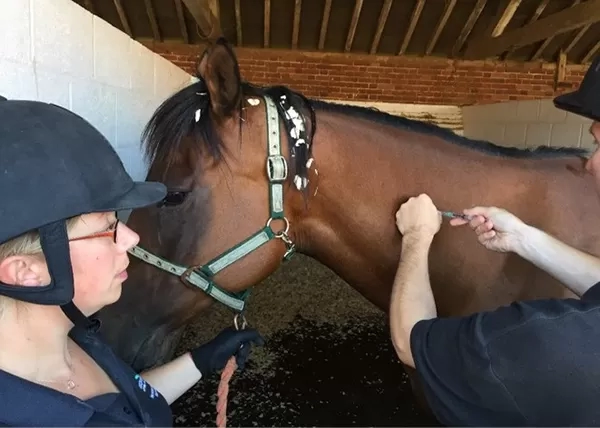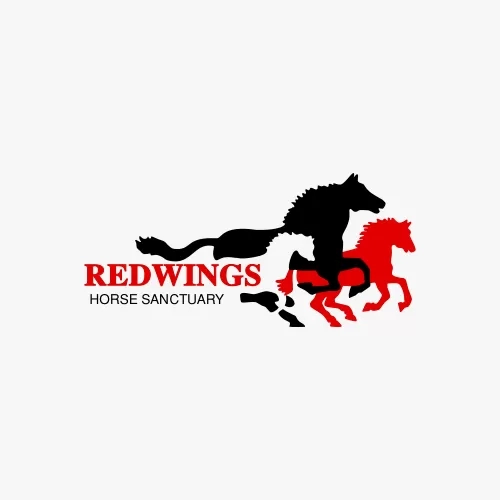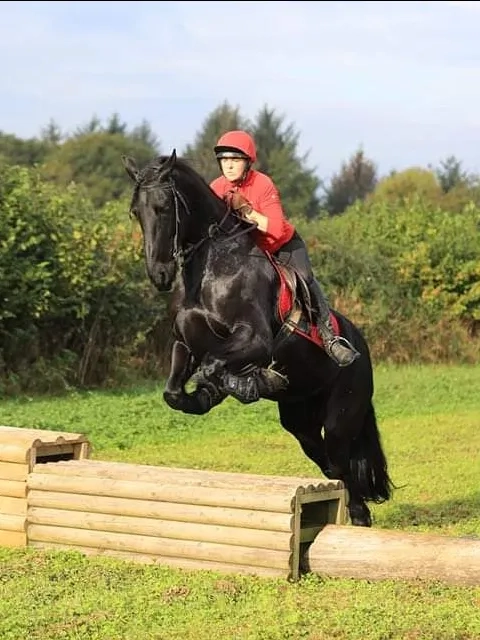07 February 2019

The current spate of cases of equine influenza (flu) being diagnosed across the UK is an important reminder of the need to take steps to protect horses from infectious disease.
Already this year, seven flu outbreaks have been recorded as far afield as Cheshire, Yorkshire and Suffolk. This compares to just three confirmed outbreaks in the whole of 2018, according to the Animal Health Trust. The number and type of current cases has brought horseracing to a temporary halt to prevent further possible spread of the disease.
What is equine influenza?
As with the human equivalent, equine flu is a viral respiratory disease that can cause:
Flu is most likely to affect younger horses who have a less developed immune system, or older and immune-compromised equines. In severe cases it can cause serious secondary infections requiring antibiotic treatment, long-term heart damage, or even be fatal.
Flu is spread as infected horses cough and snort, or in their bodily fluids. The virus can travel up to five kilometres on the air, as well as spreading through contact (from an infected horse, or items – including hands – that have been in contact with the horse). This makes it harder to contain than a disease like strangles - which is a bacterial infection only transmitted through contact.
Flu vaccinations
One of the reasons flu is less common in the UK than strangles is due to vaccination having a high level of effectiveness and being readily available. After a primary course of three injections, protection is maintained through a simple, annual or biannual booster by your vet.
Surveillance of infectious disease in horses is carried out vigilantly by the Animal Health Trust, in partnership with DEFRA and the British Equine Veterinary Association. Their information shows that the vast majority of flu cases are found in unvaccinated horses, or horses whose vaccination history is not known, showing that while vaccination is not a complete guarantee against infection, incidents of vaccinated horses contracting the disease are rare and vaccination remains the most important first step in protecting horses from flu. One or two cases of flu in vaccinated horses should not lead people to conclude that vaccination does not work.
Vaccine development is an ongoing process to ensure that products continue to be as effective as possible against different strains of disease. Research is currently underway to determine reasons for vaccine breakdown in current cases.
Biosecurity is more than vaccination
To achieve the highest level of biosecurity, vaccination must be accompanied by other biosecurity measures, including good hygiene practices and willingness to stop horse movements during an outbreak, just as the racing industry has recently done.
Use the following tips to help reduce your flu risk:
Yards where there are a large number of horses and horse movements, particularly to and from events or other yards, enable disease to spread between horses very quickly. Horse owners need to work together to quarantine any horse showing signs of infectious disease and stopping any horse moving off-site to help reduce the impact of an outbreak.

It has always been Redwings policy to vaccinate its sanctuary residents for equine flu and tetanus, as well at it being a requirement for our rehomed horses and ponies. Flu vaccination is also mandatory for racehorses, many competition horses and entry to Pony Club events, but to achieve the level of biosecurity needed to help protect the UK equine population as a whole, we need to achieve widespread vaccination of all horses and make good hygiene practices normal part of daily horse care.
For more information on biosecurity and good hygiene practices go to our Strangles Hub where you can take our Stamp Out Strangles Pledge to help support our campaign to reduce cases of the UK’s most common equine infectious disease.

Redwings Press Office
Find out more about Redwings Press Office



